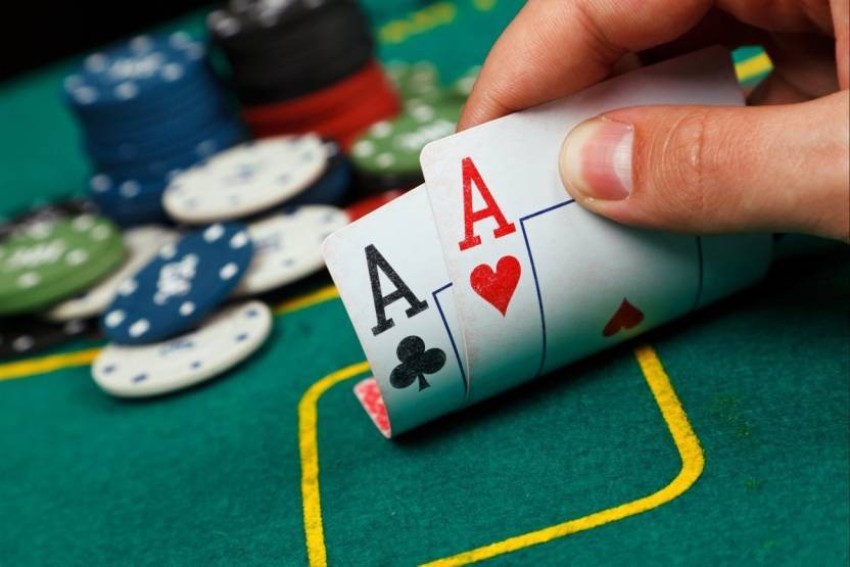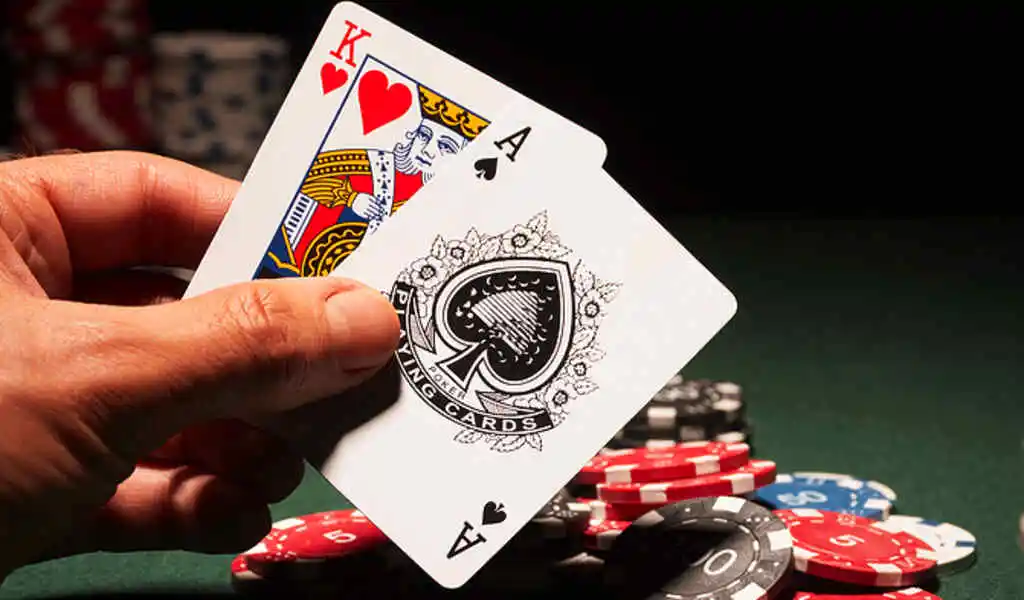Introduction
Where Did Gambling Originate: Gambling, as a human activity, has a long and complex history that spans across different cultures and civilizations. While it is challenging to pinpoint the exact origin of gambling, evidence suggests that it emerged independently in various regions of the world. From ancient China and Egypt to Greece and Rome, gambling has been an integral part of human society for thousands of years.
The practice of placing bets and playing games of chance has evolved and adapted over time, reflecting the cultural, social, and economic dynamics of different civilizations. Gambling has served as a form of entertainment, socialization, and even a means of economic exchange. Exploring the origins of gambling offers insights into our shared human fascination with risk-taking, competition, and the allure of fortune. This article will delve into the historical roots of gambling, highlighting its early manifestations and the factors that contributed to its development.

What was the origin of gambling?
The earliest time of when and how people started gambling was mentioned in the first-ever form of gaming that came from Ancient China. Basing from the Chinese book “Book Of Songs,” which refers to a wood drawing, suggesting that the tiles may have become a component of a lottery game.
The origin of gambling dates back thousands of years, making it difficult to pinpoint a specific time or culture where it began. Various forms of gambling can be traced across different ancient civilizations.
One of the earliest recorded instances of gambling can be found in ancient China, where tiles from a game similar to dominoes were discovered that date back to around 2300 BCE. Ancient Egyptians were known to engage in dice games, and gambling-related artifacts have been found in their tombs.
The Greeks and Romans also had a fondness for gambling. The ancient Greeks played a game called “Kubeia,” which involved throwing dice, while the Romans enjoyed various forms of gambling, including dice games, board games, and even betting on gladiator contests.
Gambling activities continued to evolve throughout history, with different cultures introducing new games and betting practices. As societies developed, gambling became more regulated, and establishments like casinos and gambling houses emerged.
Overall, the history of gambling is a complex and fascinating subject, influenced by the cultural, social, and economic aspects of different civilizations throughout time.
What was the first gambling site?
The first online gambling venue opened to the general public was ticketing for the Liechtenstein International Lottery in October 1994. Today, the market is worth around $40 billion globally each year, according to various estimates. Many countries restrict or ban online gambling.
The concept of online gambling and the establishment of the first online gambling site is attributed to Microgaming, a software development company based in the Isle of Man. In 1994, Microgaming created the first fully functional online casino software, which allowed players to place bets and play casino games over the internet.
The first online gambling site to utilize Microgaming’s software was “The Gaming Club,” which was launched in 1994. This site offered a range of casino games, including slots, blackjack, and roulette. The Gaming Club paved the way for the online gambling industry and set the stage for subsequent online casinos to emerge.
Since then, numerous online gambling sites have been established, offering a wide variety of betting options, including casino games, poker, sports betting, and more. The industry has experienced significant growth and continues to evolve with advancements in technology.
It’s worth noting that the exact notion of a gambling site can be subjective, as early forms of online gambling may have existed prior to The Gaming Club. However, The Gaming Club is widely recognized as the first online gambling site that operated with a dedicated software platform and offered a range of real-money betting options.
Where did gambling come from?
Early Evidence. The earliest evidence that we can find of gambling behaviors is in China. Chinese employed titles as gambling games which were dependent on chance around the 3 millennium before Christ, and Greeks would use dice to pass for the first time. However, gambling in Greece was even illegal in those times.
The origins of gambling can be traced back to ancient civilizations, where early forms of wagering and games of chance were practiced. Gambling has been a part of human history for thousands of years and has been found in various cultures across the globe.
The precise origin of gambling is difficult to determine, as it likely developed independently in different regions. Some of the earliest evidence of gambling activities comes from ancient China and Egypt. Ancient Chinese artifacts, dating back to around 2300 BCE, reveal the use of tiles in games of chance similar to modern-day dominoes. In ancient Egypt, dice games were popular, and gambling-related items have been found in Egyptian tombs.
Gambling was also prevalent in ancient Greece and Rome. The Greeks had a game called “Kubeia,” which involved throwing dice, while the Romans engaged in various forms of gambling, including dice games, board games, and betting on sports events and gladiator contests.
As civilizations interacted and traded, gambling practices spread across different regions, adapting to local customs and preferences. Over time, gambling evolved and took on various forms, including card games, betting on sporting events, lotteries, and more.
Today, gambling is a global phenomenon, with numerous forms of gambling and betting activities available in different cultures and countries. The history of gambling reflects the innate human desire for excitement, chance, and the potential for reward, making it a fascinating aspect of our cultural heritage.
Why did people start gambling?
Gambling can be an escape for people who’ve experienced a stressful change in life. Or who want to forget about life’s worries, such as relationship issues or money troubles. Others may start gambling on the pokies because they’re lonely and crave company.
The reasons why people started gambling are multifaceted and can vary depending on the cultural and historical context. Here are some of the common motivations behind the origin and practice of gambling:
1. Entertainment and Recreation: Gambling provides a form of entertainment and recreation, allowing people to engage in games and activities that provide excitement, challenge, and social interaction. It offers an escape from daily routines and can be seen as a form of leisure.
2. Socialization and Community Bonding: Gambling often takes place in social settings, such as casinos or card rooms, where people gather to play games together. It serves as a means for socializing, building connections, and fostering a sense of community. People may engage in gambling as a way to bond with friends, family, or fellow gamblers.
3. Thrill and Excitement: The element of risk and uncertainty in gambling can be exhilarating for many individuals. The potential for winning a prize or beating the odds creates a sense of anticipation and adrenaline, which some people find appealing.
4. Financial Incentive: Gambling offers the opportunity to win money or valuable prizes. For some, the prospect of financial gain is a significant motivation to participate in gambling activities. It can be seen as a way to potentially improve one’s financial situation or fulfill specific aspirations.
5. Superstition and Belief in Luck: Throughout history, gambling has been intertwined with superstitions and beliefs in luck. Some individuals may engage in gambling as a way to test their luck or believe that certain rituals or behaviors can influence the outcome.
It is important to note that while gambling can provide entertainment and enjoyment, it also carries the risk of addiction and financial loss. Responsible gambling practices and understanding the potential risks associated with gambling are essential to maintaining a healthy relationship with the activity.

What was the purpose of gambling?
Traditionally gambling is an activity where someone risks money or belongings, there is an element of randomness or chance involved and the purpose is to win.
Here are some additional purposes of gambling:
1. Fundraising and Charity: In some cases, gambling has been used as a means to raise funds for charitable causes or public projects. Raffles, lotteries, and casino nights are examples of gambling activities organized for fundraising purposes.
2. Cognitive Stimulation: Certain forms of gambling, such as card games or strategy-based games like poker, require mental skills such as critical thinking, probability assessment, and decision-making. For some individuals, gambling provides a stimulating mental challenge and an opportunity to exercise cognitive skills.
3. Competitive Spirit: Gambling can satisfy the human desire for competition and the drive to outperform others. The competitive element in gambling can be enticing for individuals who enjoy the thrill of going up against opponents and testing their skills or luck.
4. Social Bonding: Gambling activities often take place in social settings such as casinos, poker rooms, or bingo halls. For many, gambling provides an avenue for socializing, meeting new people, and bonding with friends or fellow enthusiasts who share a common interest in games of chance.
5. Psychological Excitement: The uncertainty and risk involved in gambling can trigger an adrenaline rush and provide a sense of excitement and emotional stimulation. Some individuals seek this heightened emotional state as a form of psychological escape or as a source of enjoyment.
It’s important to note that while gambling can serve various purposes, responsible gambling practices and maintaining control over one’s gambling habits are essential to avoid potential negative consequences.
What are some of the earliest civilizations where evidence of gambling has been found?
Some of the earliest civilizations where evidence of gambling has been found include:
1. Ancient China: Ancient Chinese artifacts dating back to around 2300 BCE reveal the use of tiles in games of chance, similar to modern-day dominoes.
2. Ancient Egypt: In ancient Egypt, dice games were popular, and gambling-related items have been found in Egyptian tombs. The Egyptians also engaged in board games that involved elements of chance.
3. Ancient Greece and Rome: Gambling was prevalent in both ancient Greece and Rome. The Greeks had a game called “Kubeia,” which involved throwing dice, while the Romans participated in various forms of gambling, including dice games, board games, and betting on sports events and gladiator contests.
These civilizations were among the early pioneers of gambling, and their influence can still be seen in modern-day gambling practices.
How did gambling practices spread across different regions and cultures throughout history?
Gambling practices spread across different regions and cultures throughout history through a combination of factors, including trade, exploration, conquest, and cultural exchange. Here are some key mechanisms through which gambling practices spread:
1. Trade Routes: As civilizations engaged in trade with one another, cultural practices, including gambling, were often exchanged. Merchants and travelers introduced gambling games and concepts to new regions, where they were adopted and adapted to local preferences.
2. Conquest and Colonization: Through conquest and colonization, dominant civilizations imposed their cultural practices on conquered territories. This included introducing their forms of gambling to the conquered populations, who may have adopted and modified these practices to fit their own cultural context.
3. Migration and Travel: Human migration and travel have always played a role in spreading cultural practices. People who moved from one region to another brought their gambling traditions with them, influencing the local gambling scene and leading to the development of new variations or combinations of games.
4. Cultural Exchange and Interaction: As civilizations interacted, cultural exchange occurred, allowing for the sharing of ideas, including gambling practices. Through cultural diffusion, neighboring cultures adopted and incorporated elements of each other’s gambling traditions, leading to the development of unique regional variations.
5. Technological Advancements: Technological advancements, such as the printing press, the development of playing cards, and later, the internet, played a significant role in disseminating gambling practices. Printed materials and digital platforms allowed for the spread of knowledge about gambling games and strategies across vast distances.
The spread of gambling practices was a gradual and iterative process, with influences and adaptations occurring over time. This led to the diverse range of gambling traditions we see today in different regions of the world.
What factors contributed to the development and evolution of gambling as a popular human activity?
Several factors have contributed to the development and evolution of gambling as a popular human activity. Here are some key factors:
1. Human Nature: Humans have always been drawn to activities that involve risk, competition, and the possibility of winning. The inherent desire for excitement, challenge, and the thrill of uncertainty has fueled the development of gambling throughout history.
2. Cultural and Social Factors: Cultural and social norms play a significant role in shaping gambling practices. Some societies have embraced gambling as a form of entertainment, while others have placed restrictions or prohibitions on it. Cultural beliefs, traditions, and social attitudes towards risk-taking and luck have influenced the development and acceptance of gambling in different cultures.
3. Economic Factors: Gambling has often been intertwined with economic activities. In certain contexts, it has served as a means of wealth redistribution, economic exchange, or even a source of tax revenue for governments. The potential for financial gain has attracted individuals to participate in gambling activities.
4. Technological Advancements: The evolution of technology has had a profound impact on gambling. From the invention of playing cards to the development of mechanical slot machines and, more recently, online gambling platforms, technological advancements have expanded the accessibility, variety, and convenience of gambling options.
5. Entertainment Industry: The entertainment industry, including casinos, sports betting, and online gambling platforms, has contributed to the popularity of gambling. The promotion and marketing of gambling as a form of entertainment have attracted a wide range of participants, expanding its reach and appeal.
These factors, among others, have shaped the development and evolution of gambling as a popular human activity, with its practices and forms varying across cultures, time periods, and technological advancements.

Conclusion
The origins of gambling are deeply rooted in the ancient history of human civilization. From ancient China and Egypt to Greece and Rome, gambling has been a prevalent activity across cultures and time periods. Throughout the ages, people have been drawn to the excitement, social interaction, and potential rewards that gambling offers. It has served as a form of entertainment, a means of socializing, and even a way to test one’s luck or skill.
The evolution of gambling reflects the ever-changing nature of human society. As civilizations interacted and traded with one another, gambling practices spread and adapted to local customs and preferences. Over time, new games and betting methods emerged, incorporating different elements of chance, strategy, and cultural influences.
Today, gambling continues to thrive in various forms, from traditional casino games to online betting platforms. The rich history of gambling reminds us of our innate desire for excitement, risk-taking, and the hope of fortune. Understanding the origins of gambling allows us to appreciate its enduring appeal and the cultural significance it holds in societies around the world.










